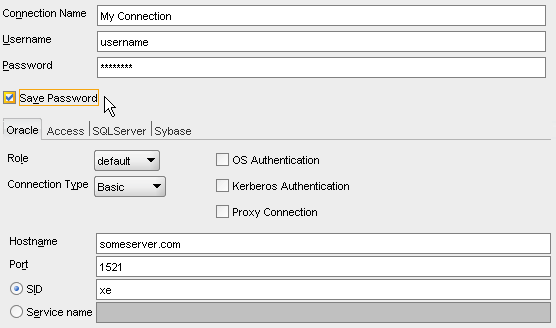I'd be more than interesting for me to understand which technique is being used here to persist sensible data since I'm needing to implement a similar solution. Here's a sample connection configuration and the resulting exported snippet:
<?xml version = '1.0' encoding = 'UTF-8'?>
<References xmlns="http://xmlns.oracle.com/adf/jndi">
<Reference name="My Connection" className="oracle.jdeveloper.db.adapter.DatabaseProvider" xmlns="">
<Factory className="oracle.jdeveloper.db.adapter.DatabaseProviderFactory"/>
<RefAddresses>
<StringRefAddr addrType="user">
<Contents>username</Contents>
</StringRefAddr>
<StringRefAddr addrType="password">
<Contents>054D4844D8549C0DB78EE1A98FE4E085B8A484D20A81F7DCF8</Contents>
</StringRefAddr>
<SKIPPED />
</RefAddresses>
</Reference>
</References>
Any advice would be really appreciated.

